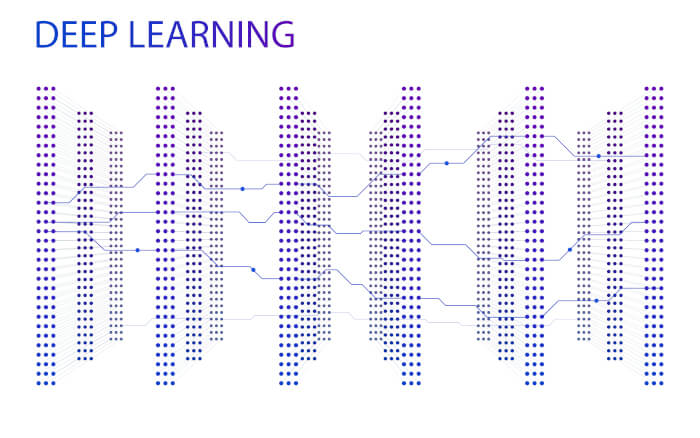Caffe (Convolutional Architecture for Fast Feature Embedding) is an open source deep learning framework, originally developed at UC Berkeley.
The software is developed with cleanliness, readability, and speed in mind. Caffe powers academic research projects, startup prototypes, and large-scale industrial applications in vision, speech, and multimedia. The software has been adopted by many large corporations including Facebook, NVIDIA, Intel, Sony, Yahoo! Japan, Samsung, Adobe, A9, Siemens, Pinterest, the Embedded Vision Alliance, and more.
The software can process over 60M images per day with a single NVIDIA K40 GPU.
The next generation of the framework – Caffe2 – is under development.
Features include:
- Fast, well-tested code.
- Models and optimization are defined by configuration without hard-coding. Seamless switching between CPU and GPU.
- Supports many different types of deep learning architectures geared towards image classification and image segmentation.
- Supports GPU- and CPU-based acceleration computational kernel libraries such as NVIDIA cuDNN and Intel MKL
- Supports CNN, RCNN, LSTM and fully connected neural network designs.
- Provides model definitions, optimization setting, with pre-trained models. Caffe comes with models that are set up to use images from the ILSVRC12 challenge.
- Offers command line, Python, and MATLAB interfaces for day-to-day usage, interfacing with research code, and rapid prototyping:
- The command line interface – cmdcaffe – is the caffe tool for model training, scoring, and diagnostics.
- The Python interface – pycaffe – is the caffe module.
- The MATLAB interface – matcaffe – is the caffe package which you can integrate Caffe in Matlab code.
- Extensible code – good community support.
Website: caffe.berkeleyvision.org
Support: Mailing List, GitHub Code Repository
Developer: Berkeley AI Research (BAIR)
License: BSD 2-Clause license
Caffe needs the following software:
- CUDA is required for GPU mode:
- library version 7+ and the latest driver version are recommended, but 6.* also works.
- 5.5, and 5.0 are compatible but considered legacy.
- BLAS via ATLAS, MKL, or OpenBLAS.
- Boost >= 1.55.
- protobuf, glog, gflags, hdf5.
Optional dependencies:
- OpenCV >= 2.4 including 3.0.
- IO libraries: lmdb, leveldb (leveldb requires snappy).
- cuDNN for GPU acceleration (v7).
Caffe is written in C++, with a Python interface. Learn C++ with our recommended free books and free tutorials.
Return to Deep Learning with Python
| Popular series | |
|---|---|
| The largest compilation of the best free and open source software in the universe. Each article is supplied with a legendary ratings chart helping you to make informed decisions. | |
| Hundreds of in-depth reviews offering our unbiased and expert opinion on software. We offer helpful and impartial information. | |
| The Big List of Active Linux Distros is a large compilation of actively developed Linux distributions. | |
| Replace proprietary software with open source alternatives: Google, Microsoft, Apple, Adobe, IBM, Autodesk, Oracle, Atlassian, Corel, Cisco, Intuit, SAS, Progress, Salesforce, and Citrix | |
| Awesome Free Linux Games Tools showcases a series of tools that making gaming on Linux a more pleasurable experience. This is a new series. | |
| Machine Learning explores practical applications of machine learning and deep learning from a Linux perspective. We've written reviews of more than 40 self-hosted apps. All are free and open source. | |
| New to Linux? Read our Linux for Starters series. We start right at the basics and teach you everything you need to know to get started with Linux. | |
| Alternatives to popular CLI tools showcases essential tools that are modern replacements for core Linux utilities. | |
| Essential Linux system tools focuses on small, indispensable utilities, useful for system administrators as well as regular users. | |
| Linux utilities to maximise your productivity. Small, indispensable tools, useful for anyone running a Linux machine. | |
| Surveys popular streaming services from a Linux perspective: Amazon Music Unlimited, Myuzi, Spotify, Deezer, Tidal. | |
| Saving Money with Linux looks at how you can reduce your energy bills running Linux. | |
| Home computers became commonplace in the 1980s. Emulate home computers including the Commodore 64, Amiga, Atari ST, ZX81, Amstrad CPC, and ZX Spectrum. | |
| Now and Then examines how promising open source software fared over the years. It can be a bumpy ride. | |
| Linux at Home looks at a range of home activities where Linux can play its part, making the most of our time at home, keeping active and engaged. | |
| Linux Candy reveals the lighter side of Linux. Have some fun and escape from the daily drudgery. | |
| Getting Started with Docker helps you master Docker, a set of platform as a service products that delivers software in packages called containers. | |
| Best Free Android Apps. We showcase free Android apps that are definitely worth downloading. There's a strict eligibility criteria for inclusion in this series. | |
| These best free books accelerate your learning of every programming language. Learn a new language today! | |
| These free tutorials offer the perfect tonic to our free programming books series. | |
| Linux Around The World showcases usergroups that are relevant to Linux enthusiasts. Great ways to meet up with fellow enthusiasts. | |
| Stars and Stripes is an occasional series looking at the impact of Linux in the USA. | |
